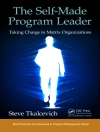Are you a Canadian who spends your winters in the southern United States, or occasionally
conducts work in the US? Many Canadians do not know that they need a work visa to legally
conduct business during their stay in the United States. Even more worrisome is that they don’t
know that they may be required to file taxes with the IRS. This law also applies to those
telecommuting from the US for Canadian businesses. The consequences of declining to pay taxes
or not obtaining a work visa can be severe. One could end up being declared an illegal immigrant
and being deported!
Innehållsförteckning
Introduction xiii
1 The Basics of US Taxation 1
1. History of the Internal Revenue Service (IRS) 1
2. The Basics 3
3. Dealing with the IRS 4
4. The IRS Examination (Audit) Process 6
5. Filing 8
5.1 When to file your Individual Income Tax Return
(Form 1040) 10
5.2 Electronic filing 11
5.3 Penalties and interest for underpayment,
late filing, and late payment 11
5.4 Filing status 12
6. Notifying the IRS about Your Change of Address 13
Contents
iv Taxation of Canadians in America
2 Your First Year in the US 14
1. Determining US Residency 14
1.1 First year elections 17
2. How Do I Get an Identification Number? 20
3 The Treaty 23
1. Residency 27
2. Real Property 29
3. Dividends, Interest, and Royalties 30
4. Gains 31
5. Personal Services 32
6. Artists and Athletes 33
7. Pensions and Annuities 34
8. Social Security 35
9. Government Service 36
10. Students 36
11. Taxes Imposed by Reason of Death 36
4 Canadian Taxation of Nonresidents 38
1. Who Is Considered a Nonresident of Canada? 39
2. Selling Property in Canada 45
5 Foreign Tax Credits 47
1. What Are Foreign Tax Credits? 48
2. Types of Foreign Income 51
3. How to Calculate the Foreign Tax Credit 52
4. Alternative Minimum Tax (AMT) 55
6 Registered Retirement Plans, Pensions,
and Social Security 57
1. Registered Retirement Plans 58
1.1. Deferral 58
1.2 Distributions 59
Contents v
1.3 Planning 61
1.4 How the taxes work 66
1.5 Other types of accounts 70
2. Pensions 71
3. Social Security 72
3.1 The Windfall Elimination Provision 73
7 Investments 74
1. Securities Law 74
2. Mutual Funds 75
2.1 Passive foreign investment company (PFIC) rules 76
2.1a Qualified electing fund (QEF) 77
2.1b Mark-to-market election 78
2.1c Excess distribution 78
3. Tax Reporting Slips 79
4. Taxation of Specific Types of Investments 80
4.1 Municipal bonds 80
4.2 Government bonds 80
4.3 Annuities 81
4.4 Personal residence 81
4.5 Investment real estate 81
5. Treaty Rules That Affect Your Securities 82
8 Common Deductions 84
1. Above-the-Line Deductions 85
2. Trade or Business Expenses 86
3. Vacation or Rental Home Expenses 87
4. Depreciation, Amortization, and Depletion Expenses 91
5. Individual Losses to Property 92
6. Alimony and Child Support 94
7. Contributions to Individual Retirement Accounts (IRAs) 94
8. Moving Expenses 96
9. Health Savings Accounts (HSA) 96
vi Taxation of Canadians in America
10. Qualified Education Expenses and
Student Loan Interest 97
11. Exemptions 98
12. Standard Deductions or Itemized Deductions 99
12.1 Standard deductions 99
12.2 Itemized deductions 100
13. State and Local Taxes 101
14. Interest Expenses 101
15. Medical Expenses 103
16. Employee Educational Expenses 105
17. Charitable Contributions 106
18. Miscellaneous Itemized Deductions 108
19. Credits 109
19.1 Child and dependent credit 110
19.2 Credit for the elderly or disabled 110
19.3 Child tax credit 111
19.4 Earned income credit 111
19.5 Education credits 111
19.6 Retirement savings contributions credit 112
19.7 Other credits 112
9 Tax Planning 114
1. Tax Planning in General 116
2. Specific Tax-Planning Opportunities 117
2.1 Your principal residence 117
2.2 Other real estate investments 118
2.3 Securities 118
2.4 Series EE bonds and I bonds 119
3. Tax Breaks for Senior Citizens 119
4. State Income taxes 119
5. Community Property 121
Contents vii
10 US Estate and Gift Taxes 123
1. US Nonresident Estate Tax 127
2. US Resident, Noncitizen Estate Tax 131
2.1 Jointly held property 135
3. Gift Taxes 135
4. Generation Skipping Transfer Tax 137
5. State Estate and Inheritance Tax 138
11 Leaving the US 141
1. Expatriation 142
1.1 Your rights after renunciation of US citizenship 148
1.2 The Reed Amendment 149
2. Tax Planning before You Leave 150
Conclusion 151
Resources 153
About the Authors 157
Tables
1 Income Threshold for Filing 10
2 US Immigration Options 21
3 Your Status: Nonresident Alien or Resident Alien 22
4 Treaty Articles 26
5 Types of Income and Withholding Rates 37
6 RRIF Minimum Withdrawals by Age 63
7 Summary of Expenses 76
8 The Format of the US Individual Income Tax Return
(Form 1040) 85
9 Trade or Business Expenses 88
10 Vacation/Rental Home 91
11 Classes of Depreciation Property 92
12 Standard Deduction Amounts 99
13 Additional Deduction Amounts 99
viii Taxation of Canadians in America
14 Limits on Medical Deductions 105
15 Gift and Estate Tax Rate Schedule 132
16 Unified Tax Credits and Exclusion Amounts 133
17 State Estate and Inheritance Tax 138
Om författaren
David Levine, CA, CPA, is a partner and the International Tax Manager at Keats Connelly.












